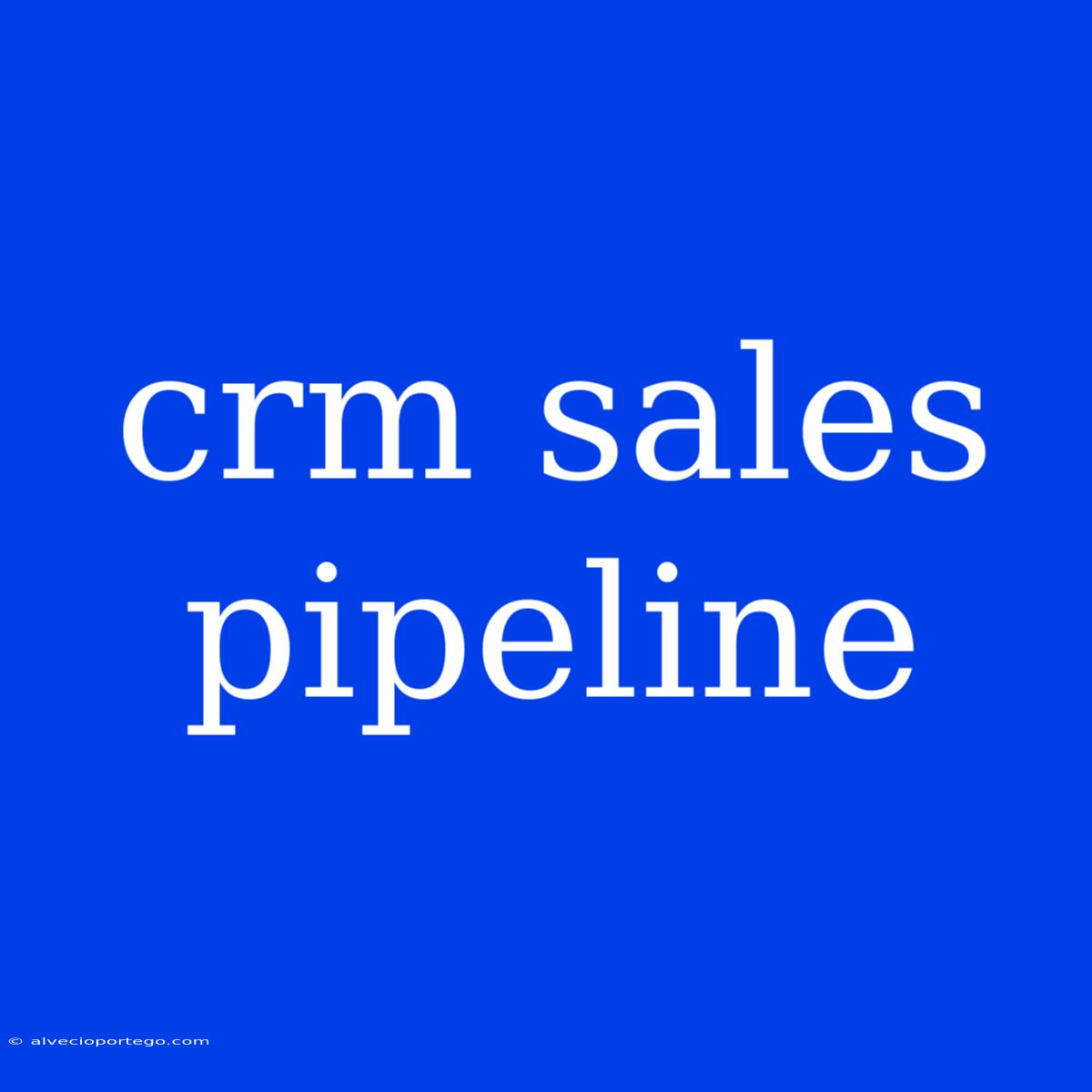The CRM Sales Pipeline: A Guide to Streamlining Your Sales Process
A robust CRM sales pipeline is the backbone of a successful sales organization. It provides a clear roadmap for managing leads, nurturing prospects, and ultimately converting them into loyal customers.
What is a CRM Sales Pipeline?
A CRM sales pipeline is a visual representation of the stages a potential customer moves through from initial contact to becoming a paying client. Each stage represents a specific point in the sales cycle, allowing you to track progress, identify bottlenecks, and optimize your sales efforts.
Stages of a Typical CRM Sales Pipeline:
While the exact stages may vary depending on your industry and sales process, a typical CRM sales pipeline includes:
- Lead Generation: This stage encompasses all activities that bring new potential customers into your sales funnel.
- Qualification: This stage involves evaluating leads to determine if they are a good fit for your product or service.
- Nurturing: This stage focuses on building relationships and providing valuable content to nurture leads and move them further down the pipeline.
- Proposal/Quotation: This stage involves presenting your solution and outlining the terms of a potential sale.
- Negotiation: This stage involves discussing price, terms, and other details of the agreement.
- Closure/Agreement: This stage marks the formal agreement and the completion of the sale.
- Onboarding: This stage involves welcoming the new client and providing them with the necessary information and support to ensure successful adoption of your product or service.
Benefits of Using a CRM Sales Pipeline:
Utilizing a CRM sales pipeline offers numerous advantages for your sales team:
- Improved Sales Forecasting: Accurate tracking of leads and their movement through the pipeline allows for better forecasting of future sales.
- Increased Sales Productivity: A clear pipeline provides focus and direction, enabling salespeople to prioritize their efforts and close deals more effectively.
- Enhanced Lead Management: A CRM sales pipeline helps you manage leads efficiently, ensuring that no potential customer falls through the cracks.
- Improved Customer Relationships: A well-defined pipeline allows for better communication and engagement with leads and customers.
- Data-Driven Insights: By tracking key metrics and analyzing data, you can identify trends and areas for improvement.
Tips for Building a Successful CRM Sales Pipeline:
- Define Clear Stages: Clearly define each stage of your pipeline and ensure that your sales team understands the criteria for moving leads from one stage to the next.
- Set Realistic Goals: Establish achievable goals for each stage of your pipeline, such as the number of leads to be generated, qualified, and closed.
- Utilize Automation: Automate tasks wherever possible to free up your team's time and increase efficiency.
- Monitor and Analyze Performance: Regularly track key metrics and analyze performance to identify areas for improvement.
- Continuous Optimization: Continuously evaluate your pipeline and make necessary adjustments based on changing market conditions and customer needs.
Conclusion:
A robust CRM sales pipeline is essential for any sales organization that wants to achieve consistent growth. By implementing the strategies outlined above, you can create a powerful tool that will drive sales, enhance customer relationships, and set your business up for success.

